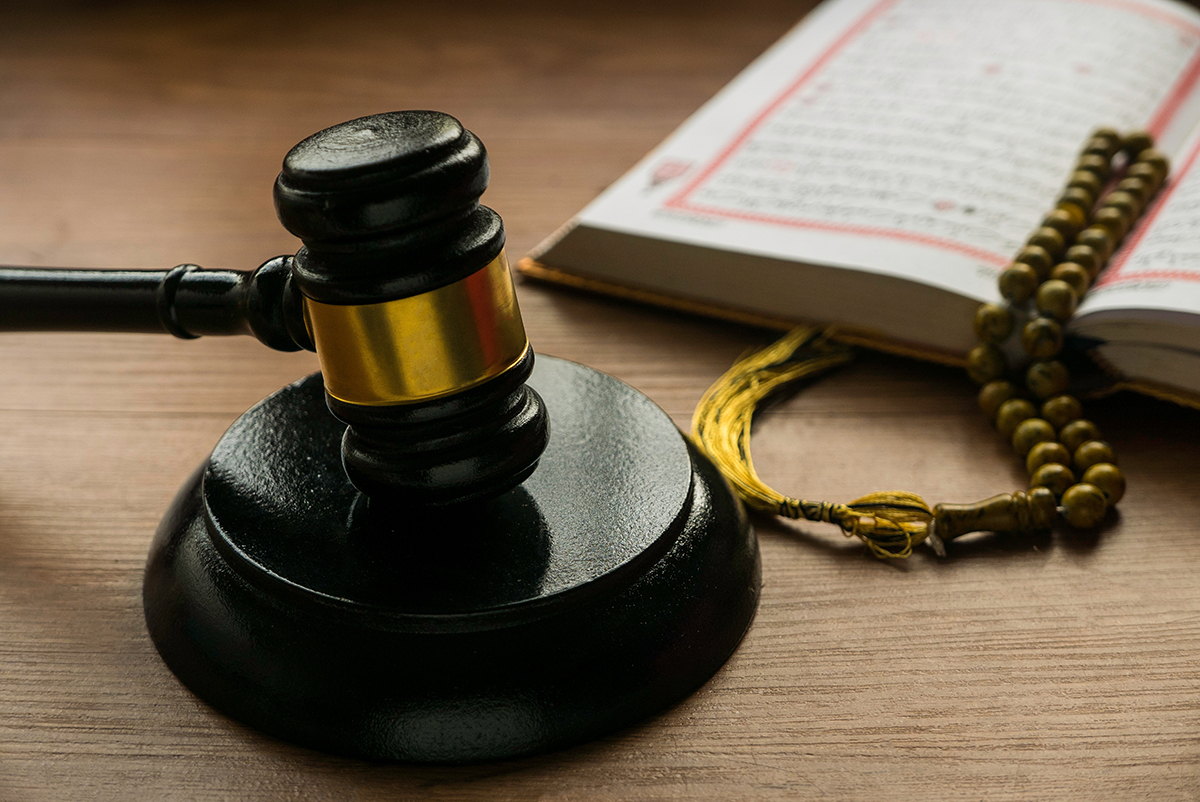Bankruptcy Considerations For Muslim Dearborn Residents
Dearborn is home to the largest Mosque in the United States, with an estimated 50% of the population being Muslim. Despite being culturally diverse, Dearborn residents are not immune to financial troubles, and many of them opt for bankruptcy when under financial stress or necessity.
This brings us to the topic at hand. How do you go through the intersection of faith and legal obligations? What should Muslim citizens of the Dearborn area consider when filing for bankruptcy? Let us simplify the process into five key considerations:
Did you know? As of 2024, around 300,000 Muslims live in Dearborn, Michigan. [1]
1. Understanding The Concept of Bankruptcy in Islamic Law (Iflas)
2. Bankruptcy in Light of Shariah and Local Legal Systems
3. Core Shariah Principles of Debt Repayment and Forgiveness
1.
Understanding The Concept of Bankruptcy in Islamic Law (Iflas)
Bankruptcy, or the general concept of seeking to get out of debt-related hardship, is outlined in Islamic teachings. In the Quranic verse 2:280, it is stated that a debtor should be “given more time to repay the loan/debt.”
Therefore, in light of the Quran and the teachings of Islamic scholars, the following are the key things to understand about bankruptcy:
- Debt Repayment Obligation: According to Islamic laws, a debtor must repay all debts if they are able to. This applies specifically to bankruptcy filers. However, if the local courts or creditors forgive the debts, then the debtor can be exempt from repaying. Chapter 13 allows for debt repayment in part or in-full.
- Prohibition of Riba (Interest): Bankruptcy filings rely on interest, which is known as Riba in the Islamic scriptures, and it is strictly forbidden. Therefore, if a Muslim files for bankruptcy, they must negotiate no interest to avoid Riba. Debt settlement involves negotiation with creditors and Riba can be addressed in those conversations.
- Social Responsibility and Charity: Islamic law encourages creditors to show leniency and offer respite to debtors facing hardships. While this can be used to persuade Muslim creditors, people of other beliefs may not be inclined towards this. Meaning, if leniency is not an option, you should intend on repaying every penny.
- Treatment of Assets and Creditors’ Rights: When a Muslim is declared bankrupt, their assets can be reauthorized to avoid harm to creditors. Moreover, Islamic law also allows assets to be confiscated and sold to repay debts to creditors. However, the primary needs of debtors are always protected.

2.
Bankruptcy For Dearborn Muslims According To Shariah and Local Legal Systems
Bankruptcy, or seeking debt to get out of financial problems under Islamic law, is simple. These matters should be seen by the local courts, and U.S. laws allow for Muslim citizens to file for such debts while aligning with their religious beliefs.
That being said, bankruptcy for Muslims according to Shariah and local legal systems includes the following key aspects:
- Bankruptcy filing must ensure prohibition of riba (interest) and gharar (uncertainty)
- Court’s judgment is necessary to declare bankruptcy and impose al-Hajr (asset freezing)
- Debtor protection must be balanced with creditor rights under both Shariah and U.S. law
- Shariah bankruptcy (At Taflis Wal Hajr) includes forbidding the debtor from disposing of assets
These factors can help a Muslim citizen seek out bankruptcy filings of any chapter and stay aligned with their beliefs.
3.
Core Shariah Principles of Debt Repayment and Forgiveness
Shariah principles simplify the debt repayment and forgiveness process for both the debtor and the creditor. Once again, this is easier when the creditor and debtor are both Muslim. However, the local law still obliges them to legally abide by the U.S. Code/Bankruptcy laws.
That being said, contracts can be negotiated based on Shariah principles, granted that both parties agree. The key factors in such bankruptcy contracts usually include the following:
- Compassion and Leniency Toward Debtors: Creditors are encouraged to be kinder towards debtors in genuine hardship. Under this Islamic principle, debtors can request extensions or even request forgiveness of debts if repayment is difficult. Nevertheless, it should only be done within the bounds of local law.
- Documentation and Honoring of Contracts: Shariah law also emphasizes the importance of contractual obligations. Both the debtor and creditor are bound by this contract to pay/repay their promised credit/debit on time.
- Moral and Religious Obligation to Repay: Repaying your debts is a moral and religious obligation in Islamic teachings. It is considered so serious that dying with unpaid debts is believed to have spiritual consequences for the deceased.
The Islamic prophet said, “The best among you is he who adequately repays his debts.” [2] Since hadiths are considered the second-best go-to for Islamic teachings after the Quran, it means the debtors must ensure they fulfill their debts.

4.
Judicial Processes and Restructuring Options
Muslim Dearborn residents must abide by local law, but their contractual obligations can be altered or negotiated per their beliefs. After filing for bankruptcy, judicial oversight and restructuring plans can be organized according to Islamic teachings and local law.
These key factors include the following:
- Bankruptcy Declaration and Judicial Oversight: A court will oversee the bankruptcy declaration to ensure fairness, transparency, and proper management.
- Debt Restructuring and Payment Plans: Various options exist to restructure the debts or arrange repayment plans according to Islamic laws and state legal obligations.
- Ethical Principles and Social Responsibility: Fairness, charity, and forgiveness are emphasized by Islamic teachings, and they can be encouraged during the bankruptcy filing or negotiations.
- Freezing of Assets (Al-Hajr): According to Muslim law, debtors might have their assets frozen under judicial supervision in order to protect creditors. American bankruptcy laws do not require this, but restructuring does take creditor rights into account.
5.
Integrating Classical and Modern Approaches
Modern insolvency frameworks can blend with traditional Shariah principles in order to accommodate Muslim creditors and debtors. This integration is a court-approved method that allows involved parties to fulfill their bankruptcy needs within religious bounds and ethical necessities.
Three of the key aspects of this integration include the following:
- Asset Protection: Islamic bankruptcy codes focus on the protection of essential assets for debtors. This means the debtors will retain means for basic living and dignity, even if some assets are dissolved to pay the creditors.
- Creditor-Debtor Balance: A balanced approach is necessary for fair treatment of both debtors and creditors. Shariah encourages this by focusing on fair treatment and prohibits exploitative practices. Under modern codes, structured negotiation and a transparent claim process can ensure this.
- Ethical Governance and Oversight: Ethical governance can be established to ensure that all proceedings align with the Islamic standards of bankruptcy. Accountability can be established to prevent potential issues and violations of local or Islamic laws.
If you are a Muslim resident of Dearborn, looking for a way to file for bankruptcy that aligns with your beliefs and local law, then Frego & Associates can help you. Reach out for a free consultation today.
FAQs
No, bankruptcy is not considered haram(forbidden) in Islam, but there are strict laws surrounding it. Islamic teaching emphasizes the importance of repaying debt, but also ensuring mercy and forgiveness. If done with honesty and dutifully, a bankruptcy declaration is permissible in Islam. However, the person who files for bankruptcy must ensure they pay all their debts, unless their debts are forgiven.
Islamic law prohibits paying or receiving interest, also known as Riba. This means that while filing for bankruptcy under U.S. law will discharge debts, including interest, if you follow Islamic law, you must avoid future interest-based borrowing.
Islamic ethics focus on honesty, avoiding deceit, and ensuring sincere efforts to repay debts. Therefore, under Islamic laws/teachings, one must not use bankruptcy to evade legitimate debts unjustly or exploit the system. Even after bankruptcy, it is the moral duty of a Muslim filer to repay any remaining debts if they regain the financial means to do so.
Yes, Islamic laws can restrict a bankrupt individual from disposing of assets to protect creditors’ rights. In Michigan, state laws may apply, but a Muslim bankruptcy filer is morally obligated to ensure they do not dispose of assets until debts are paid.
Yes, a Muslim resident has the right to seek legal counsel to file for bankruptcy under Michigan law while still adhering to their Islamic principles.
Sources:
[1] Detroit Free Press subscription offers, specials, and discounts. (2023, September 26). https://www.freep.com/story/news/local/michigan/wayne/2023/09/26/arab-americans-now-a-majority-in-dearborn-new-census-data-shows/70929525007/
[2] Sahih Muslim 1601b – The Book of Musaqah – Sayings and teachings of Prophet Muhammad (PBUH). (n.d.). https://sunnah.com/muslim:1601b




